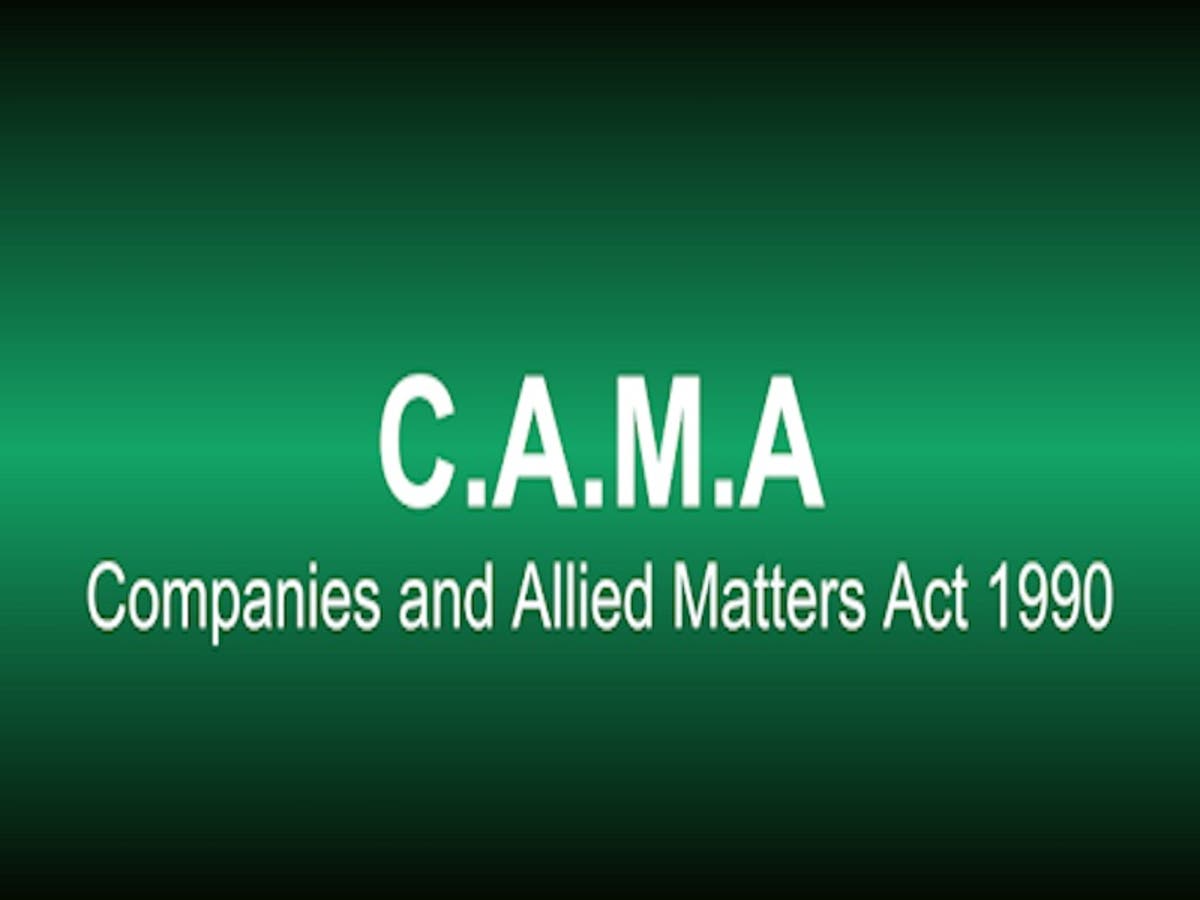
By Kehinde Nubi
The Companies and Allied Matters Act (CAMA), 2020 recently signed into law by President Buhari comes with amendments to the CAMA, 1990, which the ‘Church of God’ considers as an unnecessary interference in its affairs, and which it described as not only “satanic” but also as “obnoxious and ungodly…until…religious institutions are exempted from it.”
Let me start by saying that one should ordinarily sympathize with the seemingly justifiable position of the Church, but a very relevant question needs to be answered. “Is the ‘Church of God’ actually the Church of God or has it turned to the Church of Men”? Irrespective of one’s biases, the answer to the question is crucial in shaping perspectives to this issue.
With this introduction, let us look at the Act, its objectives and intent and the expected effects on the target persons and organisations.
The government is celebrating the Act as a vast improvement on the 1990 Act, which will ultimately make it easier to do business in Nigeria; and it is somewhat difficult to fault that. However, section 839 (1) and (2) which empowers the Minister “to suspend trustees of an association and appoint interim managers to manage the affairs of the association”, is scaring the church whose leaders, in some cases, are the gods their members worship. Scarier still to them is the fact that the Minister could do all of this for “some given reasons.”
Ordinarily, it might not be so right to subject any organisation, least of all a church, to seeming arbitrary control, and I really do think that, “some given reason” is not good enough a reason to take over a church. It seems to me that the crafters of the law would have loved to completely oust the jurisdiction of the court, were it not unconstitutional. In light of this, the recourse to the court in another part of the section seems almost perfunctory.
Quite interestingly, the Minister in question is the Minister of Trade, which raises the need to know what churches trade in. Churches, especially Pentecostal churches, indeed trade in quite a number of things, including anointing oil, other ‘articles of faith’ and ‘miracles’. There is no doubt that, in carrying out their trade, they exploit the gullibility of their members, and that is enough a “given reason” to subject them to secular control.
Talking about trading, we must also note that churches these days, are some of the biggest organizations around, at least in terms of income. They run schools, hospitals, bakeries, hotels, bookshops, printing presses, restaurants, etc. Though ‘salvation’ itself is free, the ancillary services enumerated above are not free. They are profit-oriented and therefore end up situating organizations motivated by celestial considerations, and originally set up to make members gain salvation, on terra firma seeking earthly profits. It is incomprehensible to me that such organizations are seeking protection from secular laws.
The argument of the Christian Association of Nigeria that the Church cannot be brought under secular control is therefore hilarious to say the least. I can only laugh in Yiddish!
By their own admission, they are leading sheep, and since their members do not dispute that they are ‘sheepizens’, the government is right to subject churches to control. Sheep are livestock, and all over the world, regulations govern the rearing of livestock.
Recall that the Financial Reporting Council of Nigeria (FRCN) Act, 2011 brought a similar controversy in 2017 as the then Head of the Council, Jim Obazee, tried to implement the ‘Corporate Governance Code’, which would have forced heads of any non-governmental organisation who had spent twenty years in charge, or were over seventy years old, to give up their positions.
Whilst everyone focused on Pastor E. A. Adeboye in particular, I wrote a viral post that pointed out the fact that the law entrapped the Sultan of Sokoto as well, and predicted that the law would be scrapped/suspended fast, on account of the fact that it would affect the Sultan of Sokoto’s permanent leadership of the Nigerian Supreme Council for Islamic Affairs (NSCIA). So, also, this present law will equally apply to the NSCIA. If only they had implemented that code back then! Unfortunately, and quite as usual, the State caved in to Religion.
In answering the question earlier asked at the beginning of this article, “Is the ‘Church of God’ still the Church of God or has it turned to the Church of Men”? In light of what we are seeing today, the answer is that the church of God has become the Church of Men, and instead of Men of God running it, it’s ‘gods of men’ that are in charge.
It is certainly going to be pretty funny for the Minister of Trade to suspend a Minister of God. Well, there are Ministers, and there are Ministers. If the Minister of God is a trustee of his organisation, and there are ‘given reasons’ for the Minister of Trade to “appoint…interim managers to manage the affairs of the association, so be it.”
There is no question that, at face value, ” governments at all levels…controlling the affairs of a church when it does not contribute financially to the church” appears to be an aberration, but it is a greater aberration that churches are allowed to become financial behemoths that are not transparently managed, all because no one dares queries the tin gods presiding over the vast financial empires that they run like their personal empires. To that extent, CAMA is the Church’s Karma, and it does not have my sympathy. The only regret I might have is that it will also affect genuine NGOs struggling sincerely to make people’s lives better, especially considering that paradoxically, the people making the law are worse than those they are regulating.
If this control would, as CAN views it, “snuff life out of the church and rank the church as a secular institution under secular control…”, so be it!
(c) Kehinde Nubi 2020




Comments (1)
Al Akhigbesays:
August 26, 2020 at 10:04 pmThis is a wonderful analysis of CAMA saga